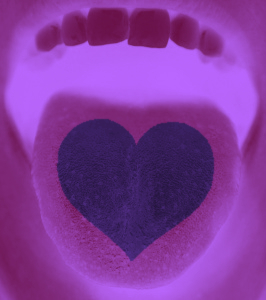Time and tongues make microbiome marriage
 For those who think science is not romantic, a new study on kissing may not help.
For those who think science is not romantic, a new study on kissing may not help.
Research has revealed that partners who kiss each other at least nine times a day share matching communities of oral bacteria.
The same project also found that as many as 80 million bacteria are transferred during a single 10 second kiss.
One of the most fascinating fields of medical research is that concerning the ‘microbiome’ – an individual ecosystem of more than 100 trillion microorganisms that live in all human bodies.
The microbiome is essential for the digestion of food, synthesising nutrients, and preventing disease.
It is shaped partly by genetics, diet, and age, but also the individuals with whom we interact.
As the mouth plays host to more than 700 varieties of bacteria, the oral microbiota also appear to be influenced by those closest to us.
European researchers studied 21 couples, asking them to fill out questionnaires on their kissing behaviour including average ‘intimate kiss frequency’.
They then took swab samples to investigate the composition of their oral microbiota on the tongue and in their saliva.
The results showed that when couples intimately kiss at relatively high frequencies their salivary microbiota become similar. On average it was found that at least nine intimate kisses per day led to couples having significantly shared salivary microbiota.
“Intimate kissing involving full tongue contact and saliva exchange appears to be a courtship behaviour unique to humans... common in over 90 per cent of known cultures,” says researcher Remco Kort.
“Interestingly, the current explanations for the function of intimate kissing in humans include an important role for the microbiota present in the oral cavity, although to our knowledge, the exact effects of intimate kissing on the oral microbiota have never been studied.
“We wanted to find out the extent to which partners share their oral microbiota, and it turns out, the more a couple kiss, the more similar they are.”
In a controlled kissing experiment to quantify the transfer of bacteria, a member of each of the couples had a probiotic drink containing specific varieties of bacteria including Lactobacillus and Bifidobacteria.
After an intimate kiss, the researchers found that the quantity of probiotic bacteria in the receiver's saliva rose threefold, and calculated that in total 80 million bacteria would have been transferred during a 10 second kiss.
The report; ‘Shaping the oral microbiota through intimate kissing’ has been compiled by researchers Remco Kort, Martien Caspers, Astrid van de Graaf, Wim van Egmond, Bart Keijser and Guus Roeselers, and has been published in the journal Microbiome.








 Print
Print